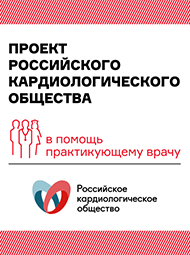Early invasive strategy effective in patients with first-time ACS
An early invasive strategy was associated with better outcomes than a conservative strategy in patients hospitalized with ACS for the first time, according to the results of a retrospective cohort study.
Researchers analyzed administrative health care data collected from 19,704 propensity score-matched patients hospitalized with a first ACS between 2005 and 2011 to compare whether early invasive strategies would reduce mortality, MI and rehospitalization vs. conservative strategies in a real-world setting.
They defined early invasive strategy as diagnostic coronary angiographywithin 72 hours of hospitalization, and conservative strategy as angiographic assessment more than 72 hours after hospitalization or no cardiac catheterization. They defined an adverse cardiac outcome as CV death or rehospitalization for MI within 60 days of index hospitalization.
Kim Wadt Hansen, MD, from Bispebjerg University Hospital in Copenhagen, Denmark, and colleagues found that compared with the conservative approach, the early invasive approach conferred a lower risk for CV death (cumulative incidence, 5.9% vs. 7.6%; adjusted HR = 0.75; 95% CI, 0.66-0.84), rehospitalization for MI (cumulative incidence, 3.4% vs. 5%; adjusted OR = 0.67; 95% CI, 0.58-0.77) and all-cause mortality (cumulative incidence, 7.3% vs. 10.6%; adjusted HR = 0.65; 95% CI, 0.59-0.72).
Results from subgroup analyses, indicated that the early invasive strategy was more favorable for both men and women, but the benefit was more pronounced among women (P for interaction = .021), beneficial in those aged at least 75 years but not significantly better in those younger than 75 years (P for interaction < .001) and beneficial for those with MI but neutral for those with unstable angina (P for interaction < .001).
In a related editorial, Jeptha P. Curtis, MD, and Harlan M. Krumholz, MD, both from Yale School of Medicine, wrote that the study, although well-conducted, “cannot strongly support causal inference” because it relies on observational data. “All of this raises a reasonable question: Should we conduct these studies if their ability to influence guidelines and practice is so limited?”
Limitations, they wrote, include no indication that all patients were candidates for either strategy, certain missing clinical data for patients, no information on indication for the procedure and no data on whether functional disabilities played a role in determining a strategy. ? by Erik Swain
Source: www.healio.com






